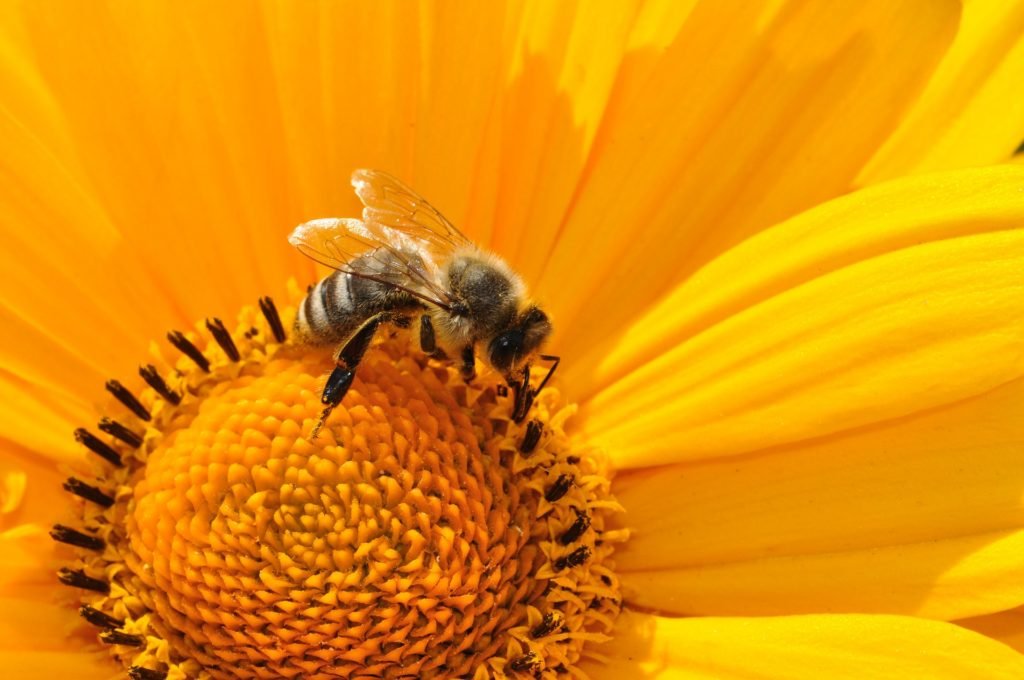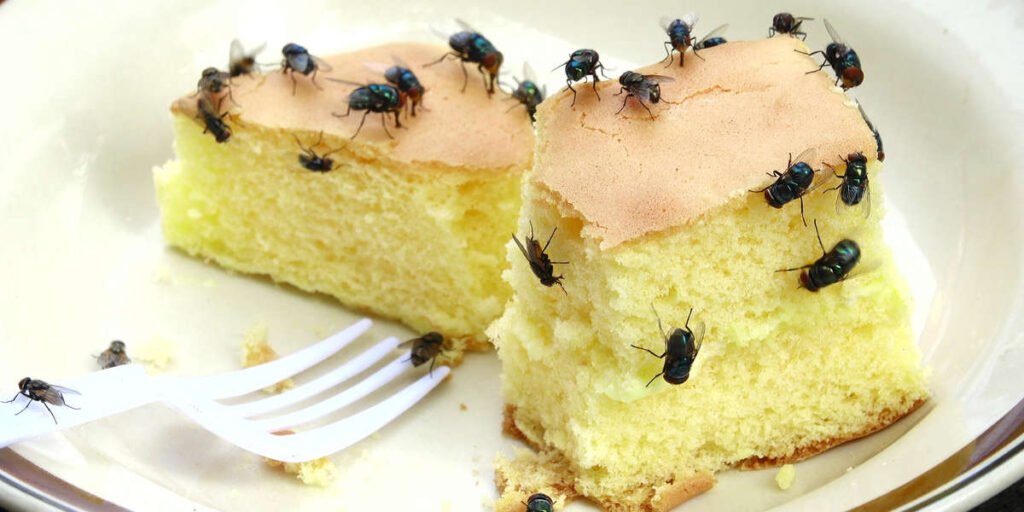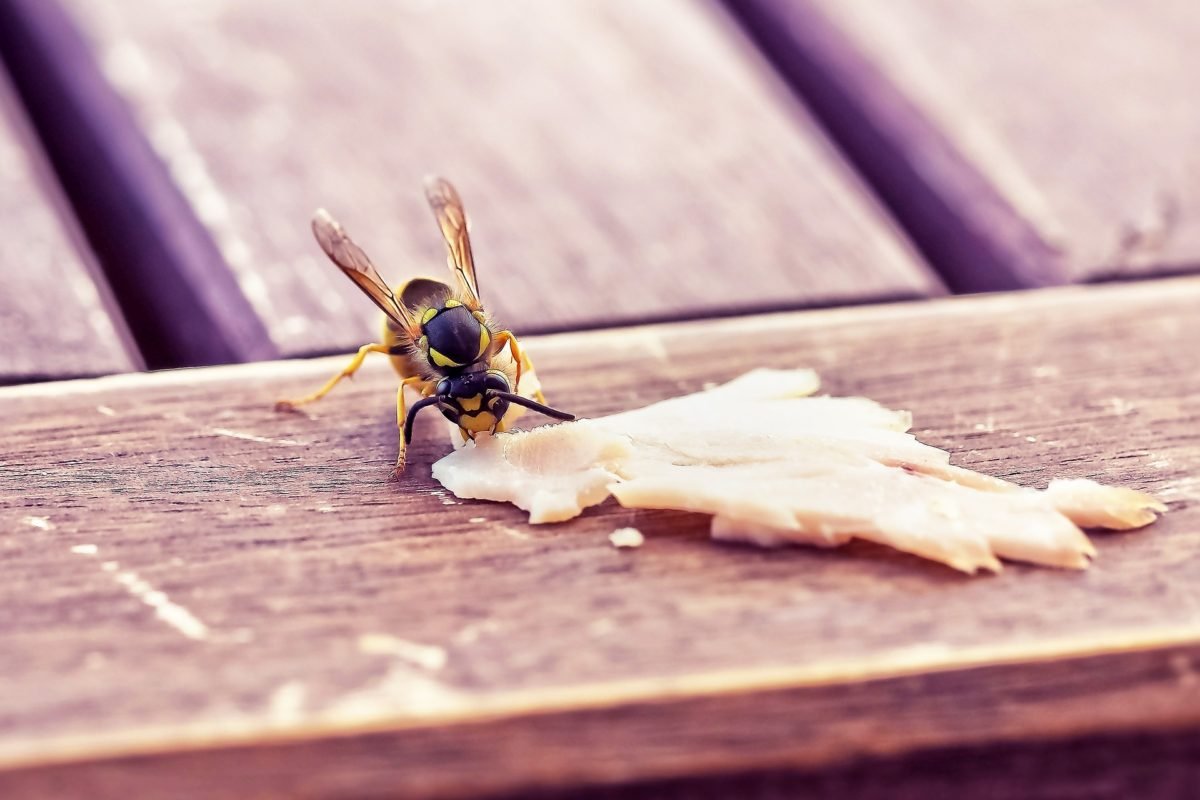Our reaction to a wasp or bee joining us for lunch is very telling of how we view all animals.
Our interaction with creatures such as a wasp or a bee can tell us a lot about our general attitudes to animals. Our first thought when a wasp joins us for an outdoor meal or enters our abode is to drive it away with any tool that comes to hand. We do this because we view them as a threat and a nuisance because of their capability to give us a painful sting particularly if children are about.
Waving our arms or newspaper or paper plate about often only has a short-lived effect. If the wasp persists in its attempts to share our food, we become frustrated and angry and have no compunction in using any weapon that comes to hand to selfishly kill it, just because it has invaded our space and become a nuisance, disrupted our pleasure and become a danger or threat.

We see more value in the life of a bee.
But if a bee should do the same, most of us tend to show a little more compassion and patience despite its equal capacity to sting, because we have been conditioned to realise its existence has some value to us in its role in nature. So we try harder and more humanely to dissuade its intentions. Ultimately though, if it persists, and particularly if we fear an allergy to its sting, we will again kill it because of its threat to us.
Unfortunately for the wasp it does not have the same reputation as the bee even though it is of similar use to mankind by being one of nature’s pest controllers. Of course, should a fly decide to join us it has no chance as we have been indoctrinated from an early age to view them as the bad guys because they pose a health hazard and are classified as pests so do not deserve to exist.

We have a habit of categorising animals
This kind of scenario encapsulates most of our attitudes to animals and our curious relationship with them. We have a habit of categorising all animals, and judging them by their reputations and what has been indoctrinated into us from an early age. We are all guilty of having preferences and unconsciously grading our level of empathy and compassion towards their well-being dependent on the type of animal and the circumstances involved.
Our basic attitude is that of intolerance and our belief that we have the last say in any interaction we have with them. We feel we only have to endure their presence if we judge them to have some value to our well-being and enjoyment and we firmly believe that we have the decisive ultimate sanction to kill them at will when they get in our way, pose a threat or become a nuisance.
Animal abuse is inevitable and perpetual.
So, the next time you swat a fly or wasp or wash a spider down the plug-hole take a second to analyse why you think nothing of it. It may only be an inconsequential event to most of us, but sub-consciously it reinforces our in-built belief that we have the right to kill animals at will and without compunction – a state of mind that sadly will never change.
Those of us who strive to improve the status of animals have, and will always be up against these complex attitudes which are difficult, if not impossible, to change once our mind-set is fixed. This unfortunately is why animal abuse is inevitable and perpetual.
